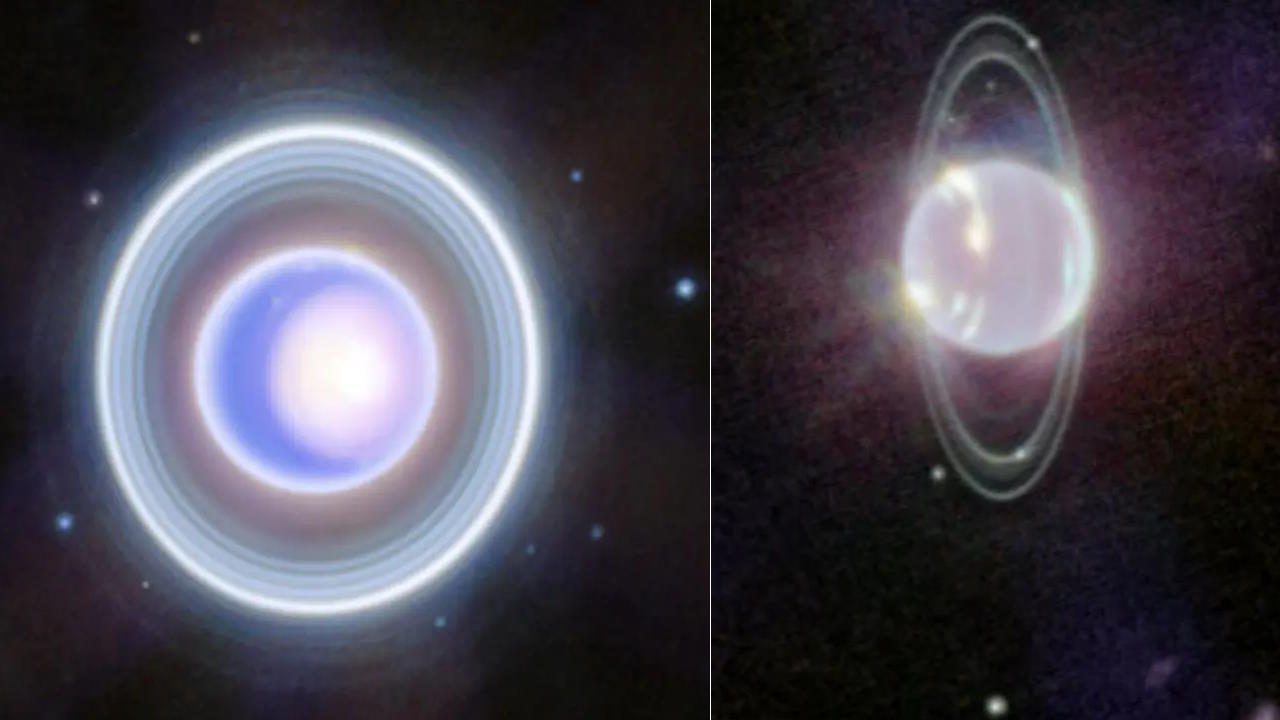Weekend Diversion: Make 2015 A Year In Space
The best 2015 calendar makes a great gift. And you can win one for free just for reading this blog!
“We are not the same persons this year as last; nor are those we love. It is a happy chance if we, changing, continue to love a changed person.”
–W. Somerset Maugham
With the end of the year coming in just over a month, it’s time to start thinking about how you want to spend 2015 for yourself, and how you want to help your loved ones usher it in. And also, remember, as we approach our new year, that there are things out there, both in this world and beyond, that have been around and will be around for much longer than that. Have a listen to M. Ward’s heart-infecting song, One Hundred Million Years,
while you consider that the Universe will still be doing its thing all around us, which includes the wonderful, the terrifying, the mundane and the spectacular.
And it will do all of those things whether we pay attention to it or not.
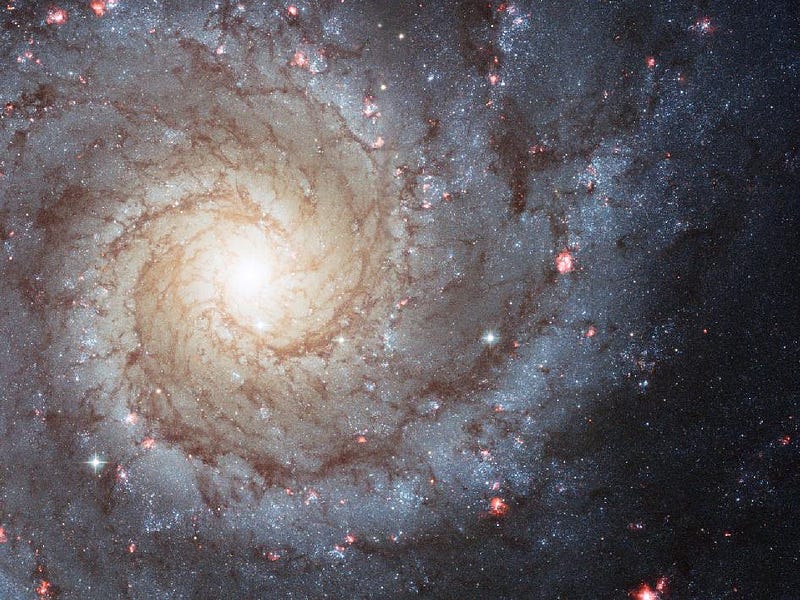
New stars will be born in nebulae,
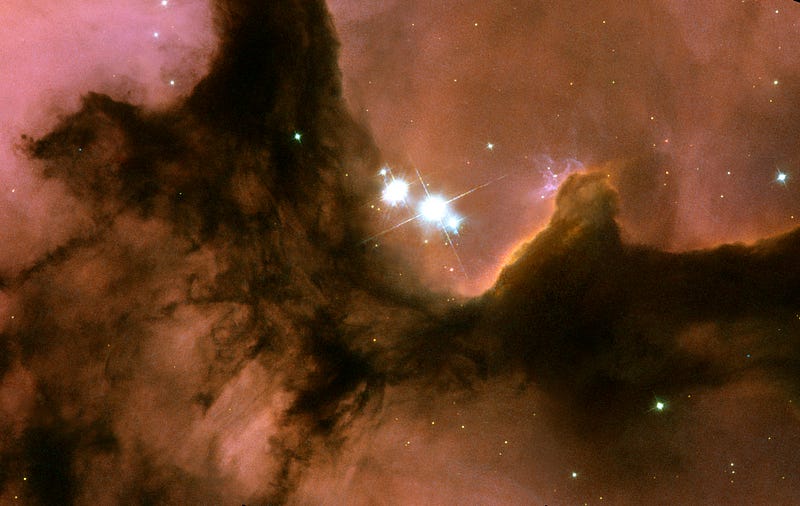
hot stars will die spectacular deaths,
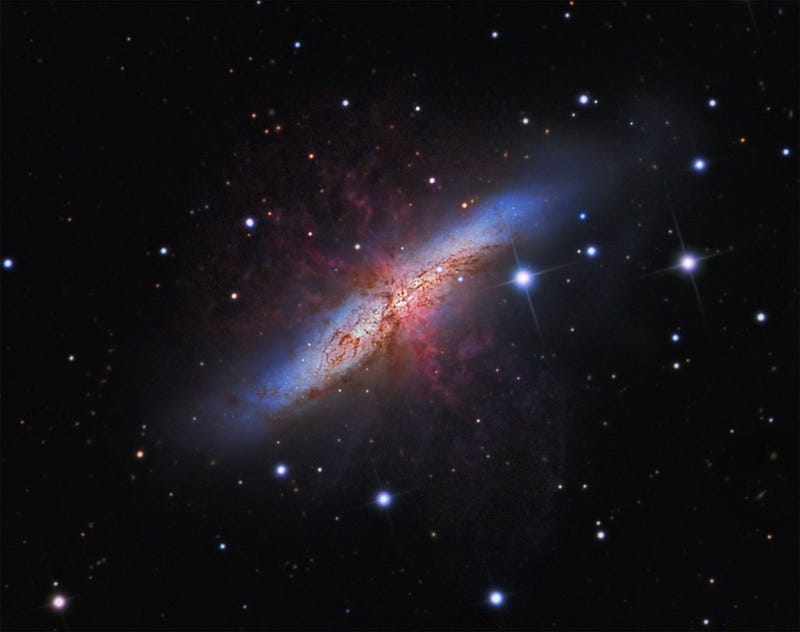
strange worlds will send new information out into the Universe about themselves,
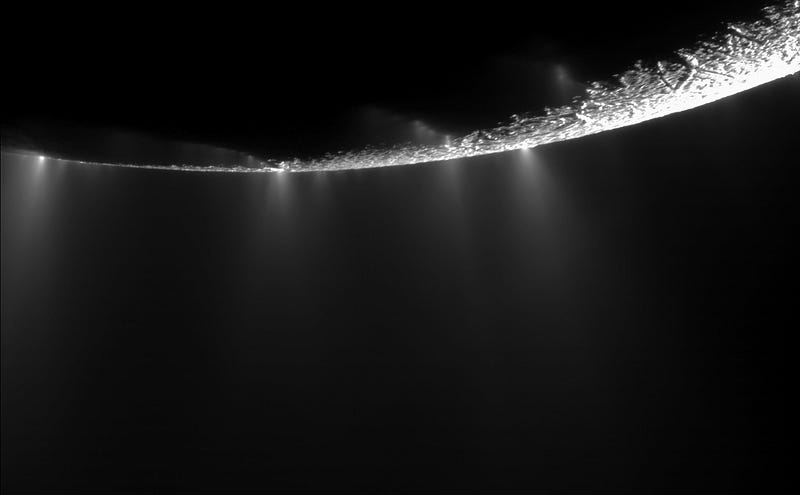
and from billions of light-years away, an average of a few billion stars from distant galaxies will slip past the barrier of where signals sent from Earth could ever conceivably reach them.
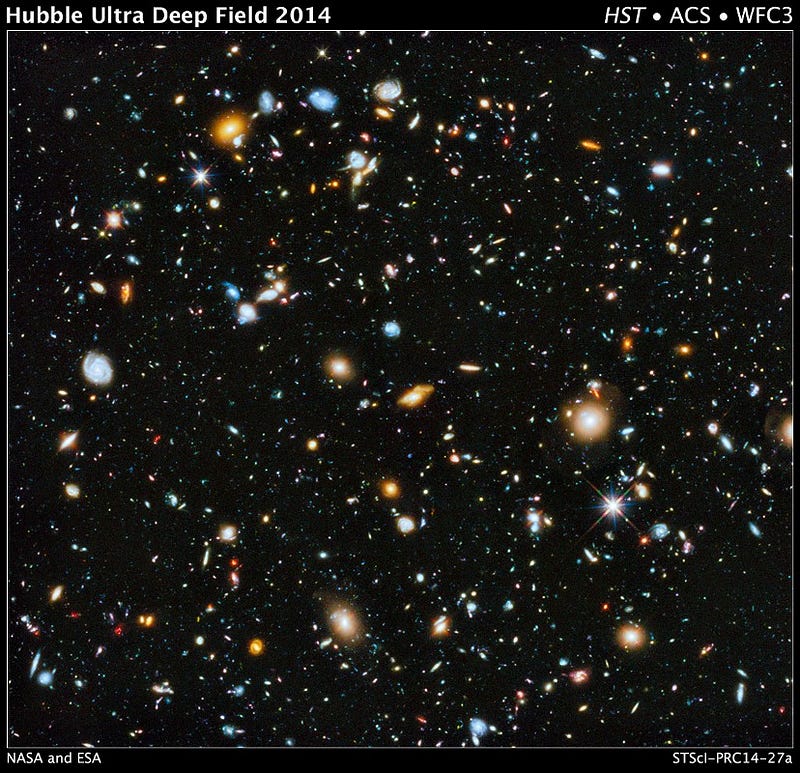
The Universe will do all of these things, and yet just a few hundred years ago, we knew none of these things. But not only do we know these things today, there’s both an entire history of how we came to learn so many of these remarkable things and a whole slew of people who’ve devoted their lives to broadening the frontiers of what is known.
And maybe, just maybe, you are (or someone you’re close to is) the kind of person who wants to share in all that knowledge. Well, have I got something for you.
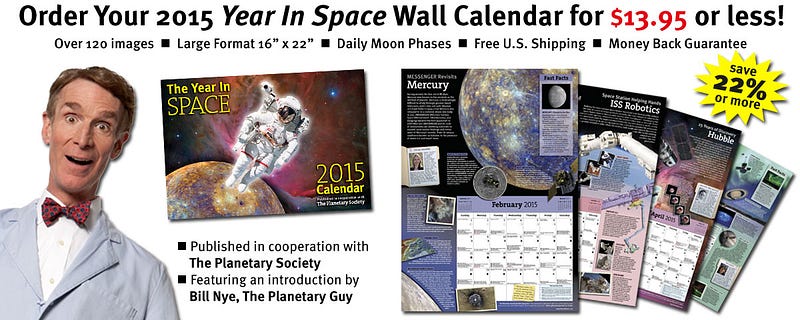
There’s a wonderful calendar out there — created by Steve Cariddi and published in cooperation with The Planetary Society — that celebrates all of this. Highlighted with big, beautiful pictures, stories about various objects in the Universe, mini-biographies of the people who’ve helped and who are helping uncover their secrets, and what we’re doing to explore these places today, there are new stories and details on each and every page.
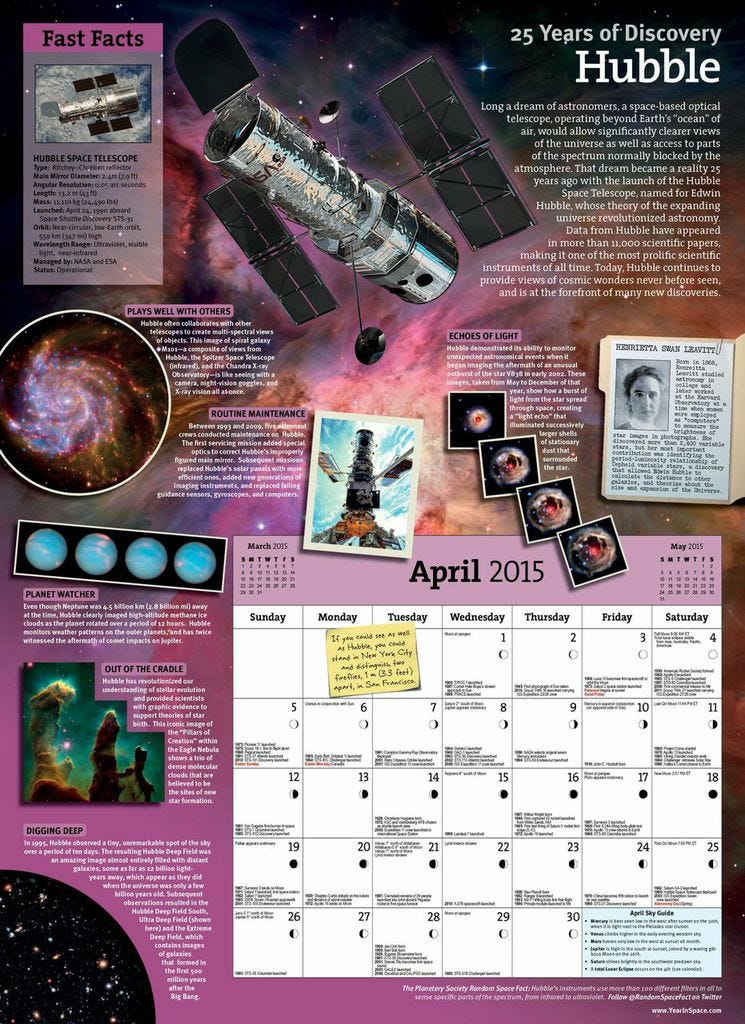
The calendar also includes a tremendous amount of bonus information that you don’t normally consider, including Moon phases for every day, celestial events like planetary conjunctions and stellar occultations, a monthly sky summary and planet-finder, and — my personal favorite — hundreds of facts and anniversaries for momentous events in the history of astronomy that happened on that day!
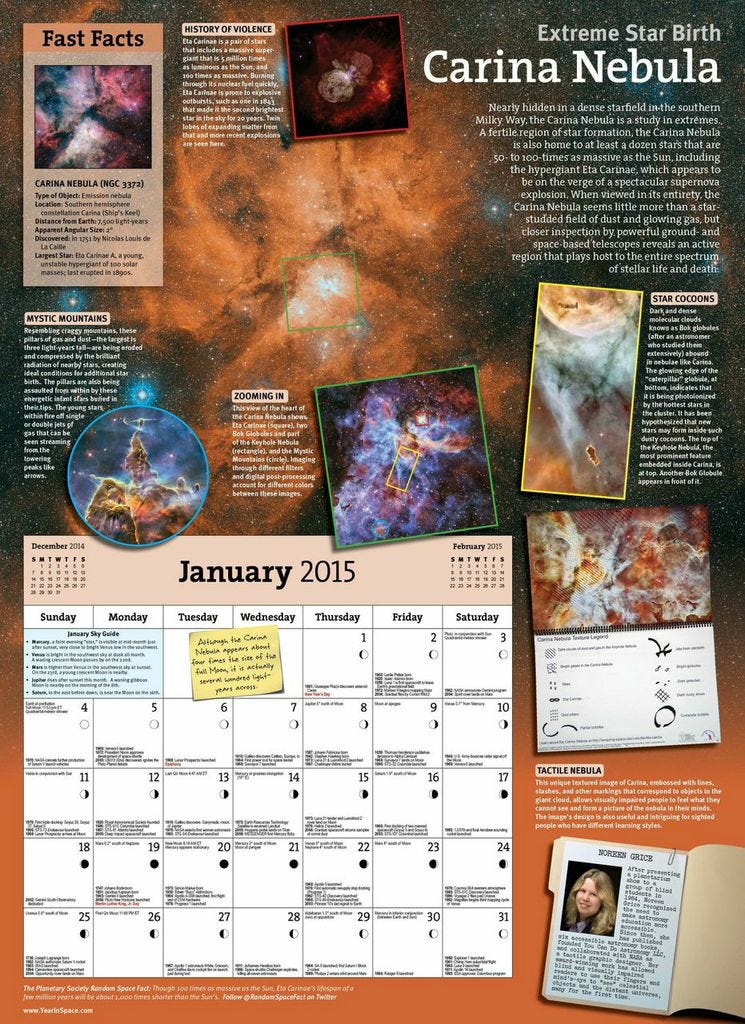
It’s also huge — 16″ x 22″ (or 41 cm x 56 cm) when fully open — which means there’s plenty to keep you occupied when you glance at it all month long. Seriously, check it out for yourself! I’ve had previous editions of this calendar grace my office walls every year, and not only do I personally recommend it, but there are two great things I can do to help you get one:
- Go to the order page and get a 22% discount (or more, if you’re ordering multiple calendars) and free shipping! (Under item 7, tell them Starts With A Bang sent you.)
- Or, if you want an opportunity to win one for free, try competing in the Starts With A Bang calendar giveaway!
Here’s how the giveaway works.
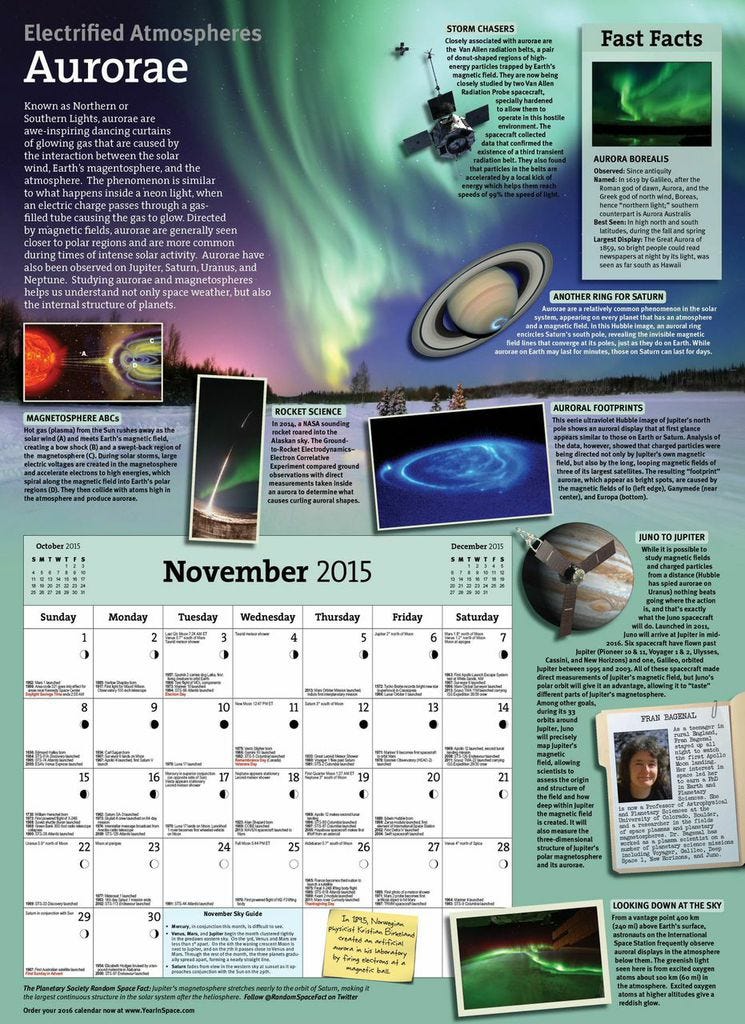
Each week, you’ve got the opportunity to “Ask Ethan” a question, just like always, here on Starts With A Bang, and I’ll choose the best one to answer in my weekly Ask Ethan column. I’ll field questions on Google+, Facebook, Twitter, or through the official submission form. When you contact me, make sure you let me know how to get in touch with you, because for the next five weeks (for the rest of the year), every reader’s question chosen for an Ask Ethan column wins a free calendar!
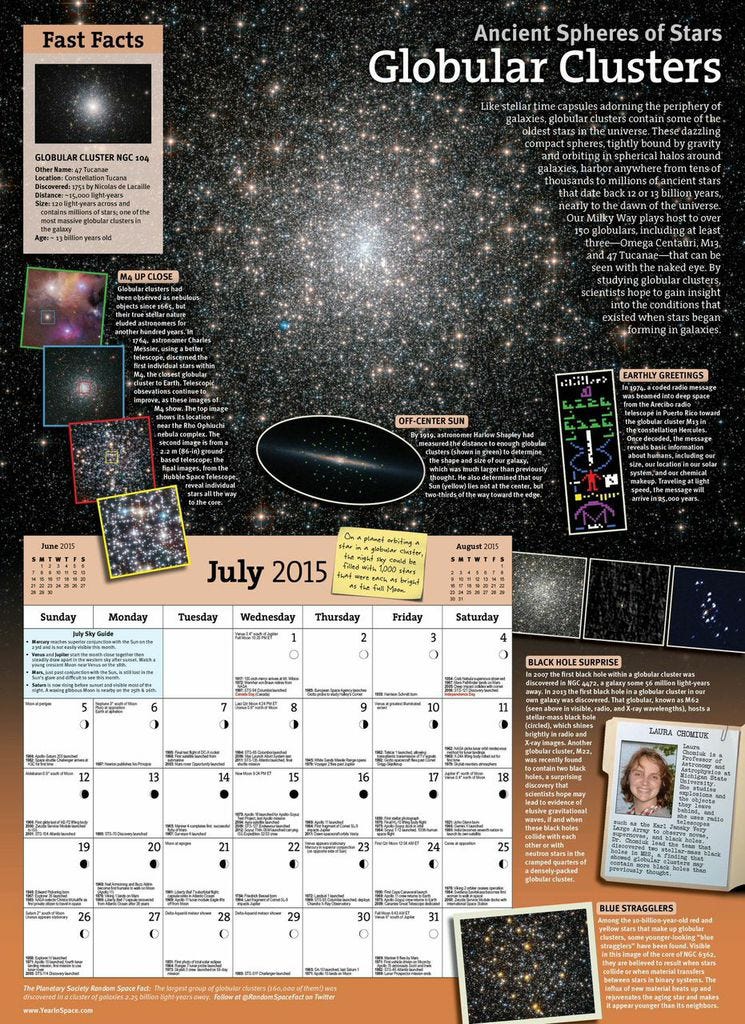
That’s it; nothing more, no hassles, and you and I will get in touch after your column runs to have it sent to you for free! So what are you waiting for? Start sending in your questions and suggestions today, or just start your holiday shopping now!
Check our our Comments of the Week if you missed them, and then leave your comments on this piece over at the Starts With A Bang forum on Scienceblogs!




